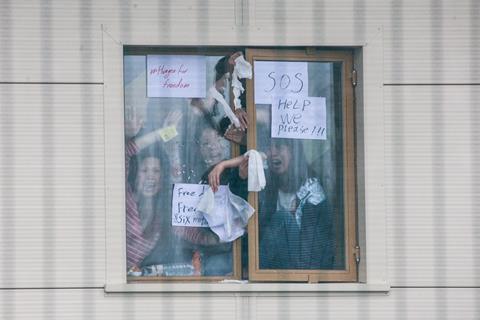How can churches practically assist those in their congregations who are threatened with removal to Rwanda? David and Debbie Hawker, who work with asylum seekers, share some practical points

Over the past two years, churches in our area have been enriched by asylum seekers who have joined us. They have cooked cultural dishes for our church family, taught us to dance, shared testimonies, co-led services, joined Bible studies, kept warm spaces open, washed up after coffee time, made art, built gardens and shared their lives with us. They have become part of our family.
Many of them fled from war zones, some while still children (although they are now over 18). Several have told us about family members being killed. Others have faced persecution due to their ethnicity or beliefs.
Many of them now fear that they will be sent to Rwanda on the government’s scheme. They are afraid that Rwanda will not be a safe place for them, that they will be returned to their home countries, risking their wellbeing, or even their lives. Some require medical treatment that they would be unable to receive there.
We have friends in Rwanda who say that is not safe to speak openly about politics, but who have concerns about the UK scheme to send asylum seekers to their country. The leader of the opposition, Victoire Ingabire, has criticised the policy, saying: “If our people don’t have enough to eat, if our kids or Rwanda’s kids don’t have the possibility of going to school because of the poverty, how will the Rwandan government give education to the kids of refugees?”
Leviticus 19:33-34 states: ”When a foreigner resides among you in your land, do not mistreat them. The foreigner residing among you must be treated as your native-born. Love them as yourself.” So how should we treat asylum seekers who fear deportation?
1. Befriend
Get to know them. Ask them about themselves. If you don’t share a language, translation apps can help. If you know their story, you might be better able to advocate for them, and they will feel more welcome and less alone.
2. Pray
Ask what they would like you to pray about. Offer to pray about their health, their families and the decision about whether they can remain in the UK. Pray for asylum seekers during church services and at prayer meetings (without naming individuals unless they want you to).
3. Inform
There is a lot of useful information for those who are at risk from organisations such as Right to Remain. Due to language barriers, reading and sharing this information with asylum seekers is really useful.
4. Support
Those who will be sent to Rwanda will first be taken to detention centres. At-risk asylum seekers can be accompanied when they are summoned to immigration reporting centres. Although supporters have to stay outside, we then know who has been detained.
Their phone is likely to be confiscated. Recommend that they memorise or write the phone number of Care4Calais (0800 009 6268) on their body. When they are given access to a phone, they can call for help.
They can seek representation from a lawyer. The court may prevent or delay removal to Rwanda if the person faces a real, imminent and foreseeable risk of serious and irreversible harm.
5. Connect
The organisation Welcome Churches writes: “Evidence has shown that, when a crisis comes, people seeking asylum rely on informal networks to get advice and information. Local churches are one of the best examples in the UK of communities that people seeking asylum rely on in times of crisis. If your church is affected by this and needs support, let us know.”
6. Give
If you feel led to give, there are many charities working with asylum seekers. As well as Care4Calais and Welcome Churches, Asylum Aid have launched legal action against the ’Safety of Rwanda policy’. Find out more here



































1 Reader's comment